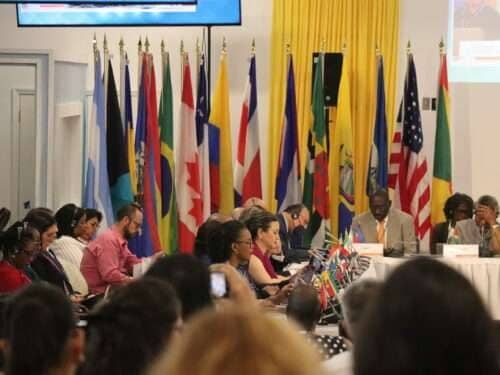As Antigua and Barbuda hosts the 55th Regular Session of the Organisation of American States (OAS) from 25 to 27 June, local civil society group Integrated Health Outreach (IHO) is urging member states to prioritise climate justice, gender equality, and greater civil society inclusion.
Speaking as the summit opened at the American University of Antigua, IHO Executive Director Dr Nicola Bird warned that marginalised groups across the Americas — including women, indigenous communities, migrants and rural farmers — are bearing the brunt of climate change.
“Women in rural areas face increased hardship from droughts, floods and disasters, often with reduced support,” Dr Bird said, describing the situation as “urgent and pressing.”
IHO noted that climate change is worsening water scarcity, harming agriculture, driving extreme weather, and threatening livelihoods, particularly for the poorest communities. The organisation has launched projects in Antigua and Barbuda to help rural women farmers adopt climate-resilient practices and sustainable livelihoods.
The group also campaigns against gender-based violence (GBV) through its IHO-GBV Coalition. Earlier this year, it partnered with the Directorate of Gender Affairs to stage an anti-GBV march, attracting over 2,000 participants.
“Building resilient, inclusive economies requires serious investment in gender equality and GBV prevention,” said IHO Communications Officer Kieron Murdoch.
GBV remains a significant issue in the Americas. According to the World Health Organization, one in four women in Latin America and the Caribbean has experienced physical or sexual violence. Some countries in the region have among the world’s highest femicide rates.
IHO is one of several civil society organisations participating in the OAS General Assembly. The group also recently represented Caribbean voices at the UN’s 2025 SIDS Civil Society Forum and the SIDS4 Conference in Antigua.


